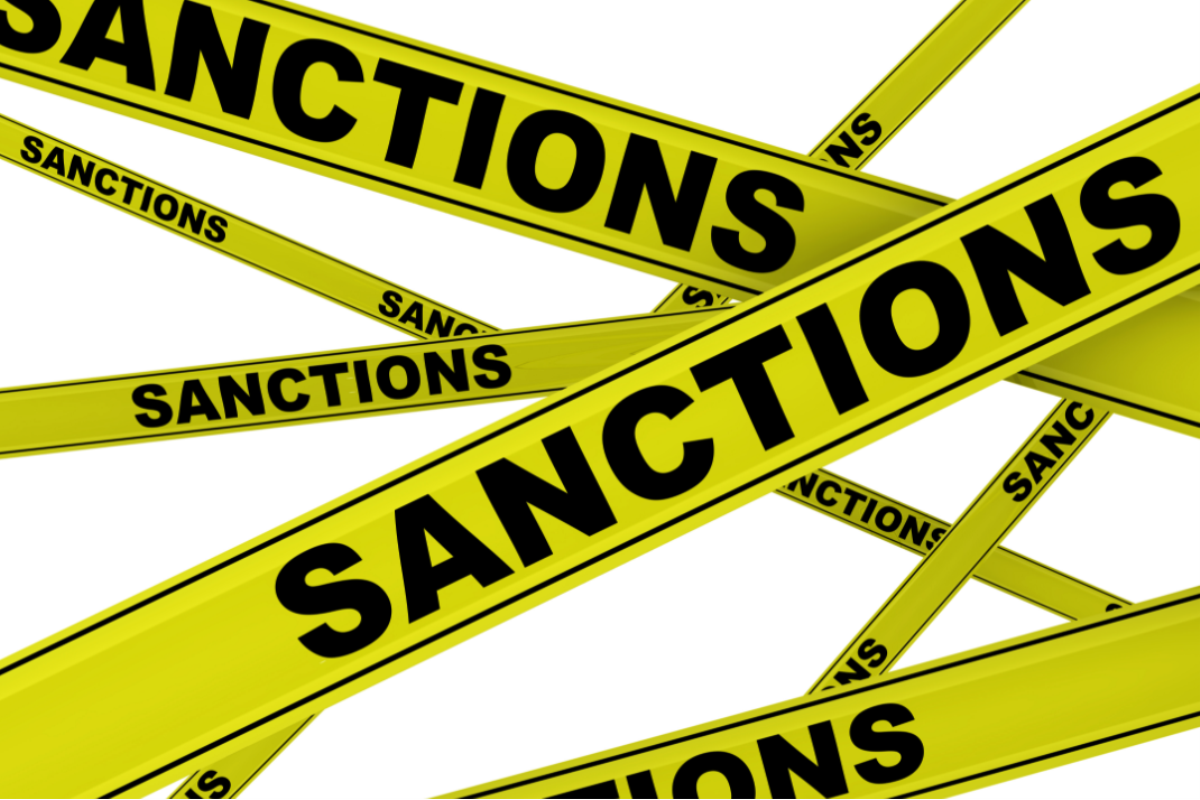



Last month, the United States convicted Mehmet Hakan Atilla, Turkish bank executive, in a conspiracy to assist Reza Zarab in avoiding U.S. sanctions against Iran. As most are aware, Reza Zarab testified on behalf of the U.S. government during trial, and in doing so named no less than six Turkish banks that had some involvement in the evasion scheme. This raises the question of what could happen to Turkish banks that were alleged to have been complicit in the sanctions evasion scheme. In our last publication, we addressed how the U.S. government has the authority to sanction foreign banks. Knowing that sanctions are possible, bank executives must understand the consequences of a U.S. government enforcement action, and determine the most advantageous course of action in preparing for such possibility.
It is difficult to quantify the harm a significant enforcement action may have on any individual bank or on the Turkish economy as a whole. But, if history is any indication the sanctions that may be imposed and possible financial penalties could be severe.
Sanctions Penalties
A foreign financial institution that is determined to evade sanctions is subject to one of two types of punishment. First, the Secretary of the Treasury may prohibit the opening - or impose strict conditions on the maintenance - of correspondent or payable-through accounts in the United States for the financial institution, effectively denying it access to the U.S. financial system. Second, the treasury secretary may impose a blocking on the financial institution, resulting not only in the financial institutions loss of U.S. market access but wide-ranging prohibitions on U.S. persons with respect to any dealings with the financial institution and the freezing of any assets the institution has subject to U.S. jurisdiction. This effectively bars foreign financial institutions from engaging in the global economy.
Economic Impact of Enforcement Action
Recognizing that the U.S. government may restrict access to the U.S. financial system, this raises secondary concerns of economic impact for the banks individually and the Turkish banking system as a whole. For a variety of reasons, reports indicate that international investors are growing nervous about Turkey. The recent indictment of a number of Turkish individuals and the prosecution and conviction of a high ranking banking official over the sanctions evasion scheme - and the risk that some of the country's banks might be sucked into the case - lies at the heart of the concerns.
Turkish banks have earned a reputation as being among the best-run in emerging markets since the 2000 financial crisis, holding capital reserves far above those required by global rules. However, Turkish banks are borrowing funds on international markets for lending on to domestic clients. Borrowing costs are rising for the banks, debt to the dollar has accumulated at a value equal to a third of Turkey's total foreign debt while bank shares are down 20 percent since mid-August. Additionally, the Turkish Lira has fallen more than 10 percent against the dollar and euro in the past three months alone, showing losses of over 50 percent since the end of 2012.
Inflation hit a 9-year high of 11.9 percent in October, while Turkish bond yields have reached record levels above 13 percent. Ratings agency Standard & Poor's said on Wednesday an insufficient response by the central bank would be an immediate concern for Turkey's sovereign debt rating.
While a combination of conditions have contributed to this situation, the possibility that Turkish banks themselves might become involved, facing the kind of huge fines slapped on other international banks in the past for sanctions-busting, would have severe consequences for the lenders and the wider economy.
A sanctions action by the U.S. government would lead to a number of issues. First, individual banks would likely take a significant hit to their stock. Second, most, if not all lending from all international institutions would stop until the situation is more clearly defined.
The combination of denial to the U.S. market, prohibitions from transacting in U.S. dollars, falling stock prices and inability to obtain loans from other international entities would effectively cripple the banks ability to do business, and by extension have an enormous impact on the overall economy.
However, each of these issues may be resolved with a speedy resolution to any sanctions action. Being prepared for an enforcement action will allow the banks to potentially avoid being cut out of the U.S. market, permit speedy resolution to improve stock outlooks, and permit other institutions to continue lending money during or after the conclusion of any legal action. Banks must be prepared to pro-actively face these challenges in order to be prepared if a enforcement action is initiated. Waiting to react to an enforcement action could cost months of delay in seeking a resolution and leave banks to linger without the ability to transact business as needed. Banks' failure to timely retain U.S. counsel may also curtail, or, worse, invalidate protections afforded by attorney-client privilege.
Compliance
OFAC sanctions are promulgated under a strict liability regime, and thus the burden is on individual companies to assess their own areas of risk and then take reasonable steps to prevent transactions (direct or indirect) that violate US sanctions laws. OFAC expects companies to develop their own risk-based compliance programs to ensure that they have identified and addressed the areas of their business operations that present the most likely instances of possible violations.
Compliance is a continuing challenge for foreign companies, especially to foreign financial institutions that transact in U.S. dollars. Indeed, for non-US entities and individuals, the degree of difficulty is heightened because US-defined grounds for sanctionable conduct may not be fully understood by transaction parties from other jurisdictions or consistent with legal requirements and compliance responsibilities established under local laws. An ongoing compliance initiative or review is important in remaining prepared against any such allegations or for resolving sanctions actions by the U.S. government.
Failure to enact or maintain a compliance program can cause significant delays, result in additional fines, or cause the bank to face penalties without favorable resolution.
Being Proactive
Many U.S. government agencies, and the Department of Justice encourage and recognize proactive intervention by companies
when possible wrong-doing is suspected. In this instance, banks face potential issues of respondeat superior, particularly after the conviction of Mehmet Hakan Atilla. Under U.S. law an entity is responsible for the actions of their employees. Thus, failing to take action or turning a blind eye to the events occurring in the U.S. may be viewed as additional evidence of complicit behavior in the sanctions evasion by the banks themselves.
Consistent with the actions of many U.S. and other foreign banks, an initial investigation followed by a more robust internal investigation and compliance program may be warranted.
A typical road-map in preparing for a sanctions action includes:
Conclusion
It is imperative that foreign banks take action to assess their risk of sanctions and to prepare a strategy to effectively meet and resolve any such enforcement action. A comprehensive review of prior bank actions and the initiation of compliance programs will provide significant insulation for any sanctions action now or in the future.
Contacts
Aksan Law Firm AmericanDesk Partners
Mehmet Baysan & Bradley L. Henry